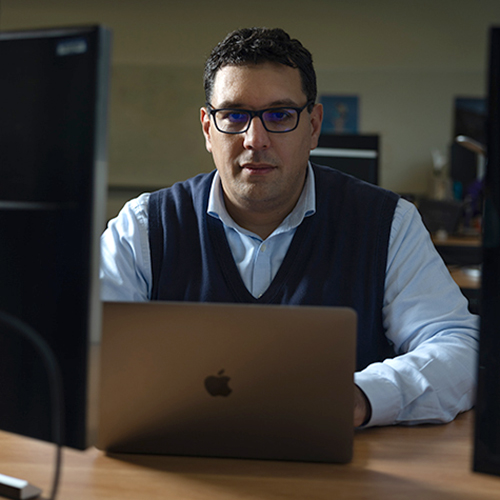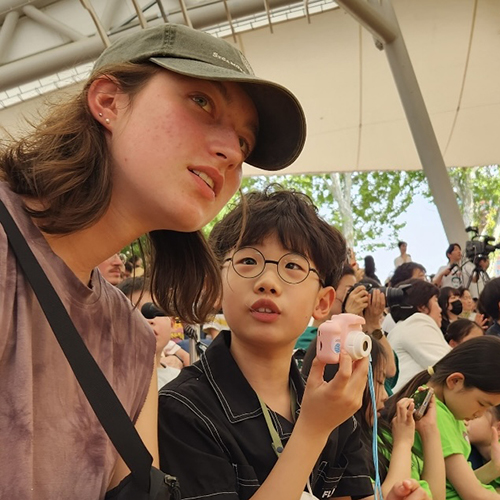Now Brooks is helping others pursue related research through a $60,000 gift to the Department of Astronomy. His gift, plus a pledge of $300,000 in additional support, has allowed the department to establish the Brooks Prize Fellowship in Theoretical Physics, which will support the work of postdoctoral students in cosmology.
“I wanted to become closer to the scientific community in general and the astronomy community in particular,” says Brooks. “And I wanted to assist scientists focusing on issues in cosmology that are of interest to me.”
It once appeared that Brooks might pursue a science career himself. As a junior high school student, he spent hours at the public library reading Scientific American and Sky and Telescope magazines, and then bought—and built—his first telescope from a kit. “It had a three-inch diameter mirror, which is a very small telescope by modern standards,” Brooks recalls. “But it was far more powerful than Galileo’s telescope—a very crude spyglass.”
In college, Brooks turned away from science and instead graduated with a degree in English literature, subsequently pursuing a career in finance. Along the way, he earned an M.B.A. from the UW. Focusing on his work and family, he spent little time thinking about astronomy—until ten years ago.
“I was in a bookstore and picked up a copy of Sky and Telescope—which I hadn’t read for about 20 years,” Brooks says. “I saw advertisements for very sophisticated, computerized telescopes that were within my price range. I was intrigued and almost bought one. Instead I purchased a modest, non-computerized scope that was a little larger than the telescope I had as a kid to see if my interest was genuine.”
That’s when Brooks developed what he calls “aperture fever”—the desire for a telescope with more aperture and more power. “It’s a disease amateur astronomers often get,” he jokes. Before long Brooks purchased a cabin near Winthrop, Washington, where the dark sky and clear air provide better viewing, and installed “a largish telescope” there.
When Brooks turned fifty, several colleagues who knew of his passion for astronomy arranged a behind-the-scenes tour for him at the UW Department of Astronomy. He met with then-department chair Craig Hogan and other faculty renowned for their work in cosmology. “They wowed us all with their 3-D displays and computer simulations of the evolution of the universe,” says Brooks. “For me, the big thing was to talk to these astronomers about questions I’d pondered for years.”
Inspired by that visit, Brooks soon contacted Hogan to discuss how he could support the department’s cosmology research. Their discussions led to his recent gift, which will support two postdoctoral fellows for three years.
Hogan encouraged Brooks to support postdocs, he says, because “the years after completing a Ph.D. are often a transformative period in scientists’ professional lives. They are able to apply a fresh approach to science and can really serve as a catalyst for creativity within the department.” The College is hoping to develop an Institute for New Science that will support other postdoctoral scientists.
Brooks, whose gift will make such a difference in astronomy, now plans to become more involved as a College volunteer. But he will be sure to leave plenty of time for trips to Winthrop, where he can view the night sky through his own telescope and ponder the big questions of the universe.
“I get a great deal of personal comfort and satisfaction from the proper appreciation of my place in the universe,” Brooks explains. “It spotlights the preciousness of the very brief time each of us has. I find it satisfying in a very spiritual way.”
More Stories

Democracy by the Numbers
Mathematics and Democracy, an undergraduate mathematics course, explores the role of math in many aspects of democracy, from elections to proportional representation.

A Statistician Weighs in on AI
Statistics professor Zaid Harchaoui, working at the intersection of statistics and computing, explores what AI models do well, where they fall short, and why.

Finding Family in Korea Through Language & Plants
Through her love of languages and plants — and some serendipity — UW junior Katie Ruesink connected with a Korean family while studying in Seoul.